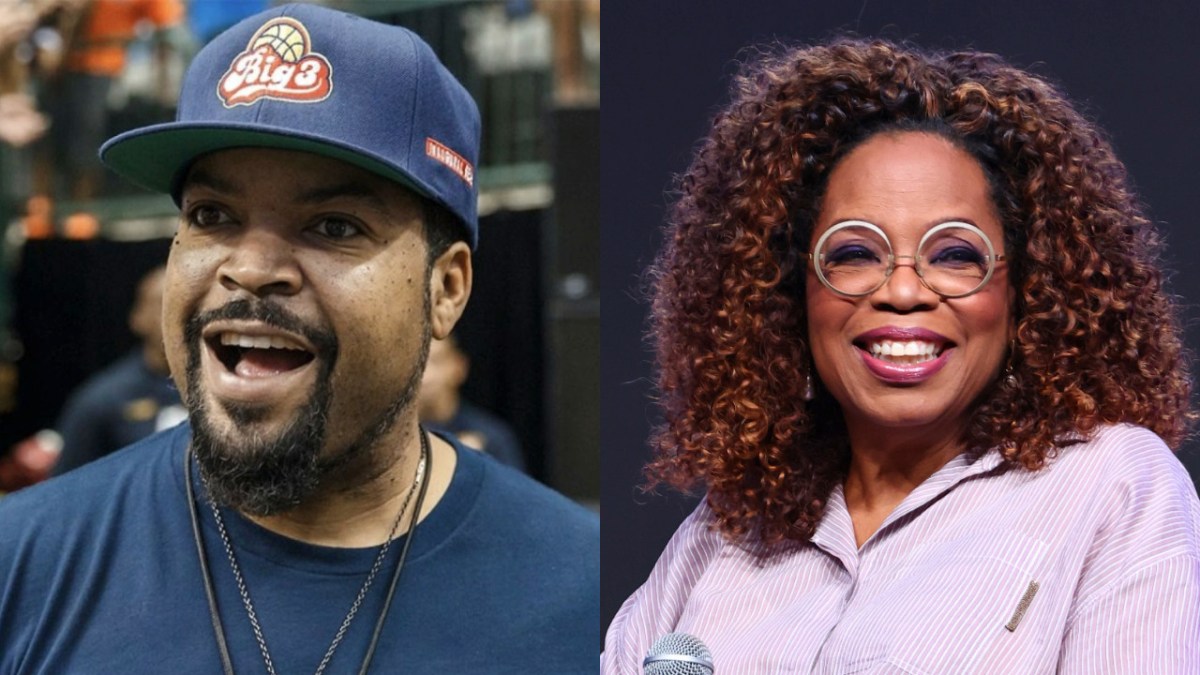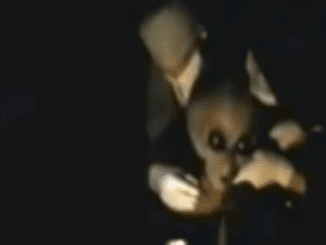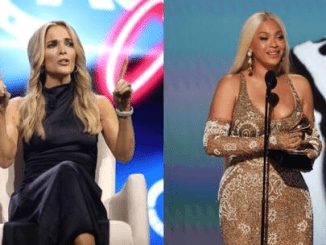Ice Cube’s recent claims of exclusion from Oprah Winfrey’s talk show have sparked widespread debate about gatekeeping and ideological bias within Hollywood’s elite circles.
In a candid interview, Ice Cube expressed frustration at being systematically excluded from influential platforms such as Oprah’s show and The View due to his nonconformist views and outspoken personality.
Ice Cube, born O’Shea Jackson, rose to prominence as a rapper and later transitioned into film production and acting.
Despite his successful ventures, including popular movies like Barbershop and provocative TV shows like Black White, Cube claims he’s been sidelined by prominent media personalities and programs, alleging a pattern of ideological exclusion.
Speaking with conservative commentator Tucker Carlson, Ice Cube stated explicitly that his attempts to participate in mainstream discussions had often been thwarted because he doesn’t fit neatly into accepted political narratives.
One particular revelation that caught public attention involved Oprah Winfrey herself. Ice Cube claimed he was notably excluded from Oprah’s show during promotional events for his films and TV shows, including “Barbershop” and “Black White,” a provocative series that challenged racial perceptions.
Cube’s portrayal of himself as an independent thinker resisting mainstream Hollywood pressures resonated with many who perceive entertainment media as tightly controlled by a privileged few.

The rapper’s sentiments echo those of other black entertainers who’ve openly discussed being sidelined or penalized professionally for speaking their truths.
Ice Cube’s public airing of grievances suggests that an underlying culture of ideological gatekeeping prevents diverse or critical voices from fully participating in Hollywood’s power structures.
Cube’s criticism extends beyond television. He specifically called out the NBA, accusing the league of undermining his Big3 basketball league behind the scenes.
Rather than wanting collaboration with the NBA, Ice Cube requested merely that the established organization cease actions he viewed as deliberate interference.
Such claims underscore Cube’s broader narrative of being systematically targeted by influential industry institutions because of his insistence on independent thought and action.
Notably, Cube’s recent interactions with media personalities such as Tucker Carlson, Joe Rogan, and Piers Morgan have reinforced his image as an anti-establishment figure willing to cross ideological boundaries.
His decision to engage with these polarizing figures sparked controversy and increased attention from both supporters and detractors.
Cube argued that his willingness to have open dialogues, regardless of political alignment, challenges Hollywood’s unwritten rules governing whom public figures should engage with.

The controversy surrounding Cube’s statements intensified following his remarks about transgender identities during an appearance with Carlson.
Cube drew criticism after making analogies perceived as dismissive by some in the transgender community, sparking intense backlash online.
He compared transgender identity to someone claiming to identify as a pigeon, a comment widely viewed as trivializing and insensitive toward transgender experiences.
Though Cube defended his perspective as a legitimate viewpoint, the analogy increased public backlash against him, further complicating his relationship with mainstream media platforms.
Simultaneously, Oprah Winfrey herself has faced significant scrutiny regarding her relationships and dealings within Hollywood, particularly regarding the treatment of black artists.
Actress Taraji P. Henson recently highlighted disparities in pay and accommodations among Black actors on projects co-produced by Winfrey, such as the recent remake of “The Color Purple.”
Henson’s comments drew attention to broader allegations that Oprah, despite her activism and philanthropic efforts, has sometimes failed to adequately support black talent financially and logistically during film productions.

The controversy escalated to the point where Winfrey publicly defended herself, attributing salary discrepancies to the studio system, emphasizing that she personally intervened whenever issues like transportation or food arose.
Rapper and actor 50 Cent has also openly criticized Oprah, accusing her of unfairly targeting black men within the entertainment industry, particularly amid the MeToo movement.
He alleged that Oprah disproportionately scrutinized black artists compared to their white counterparts, citing cases involving Michael Jackson and others as evidence.
This narrative contributed to ongoing debates about Oprah’s authenticity and consistency as an advocate for racial equity within Hollywood.
Adding to the broader criticism, comedian and actress Mo’Nique publicly accused Winfrey of betrayal after her Oscar win for the film “Precious.”
Mo’Nique alleges that Oprah played a significant role in her subsequent blacklisting within the industry, fueled in part by Mo’Nique’s refusal to conform to certain expectations set by influential figures such as Tyler Perry and Oprah herself.
This feud intensified when Mo’Nique revealed deeply personal details, alleging Oprah had brought Mo’Nique’s estranged family members onto her show without explicit consent, including a brother who had allegedly molested Mo’Nique during her childhood.
Mo’Nique described this as a profound breach of trust, intensifying the controversy around Oprah’s intentions and methods.

The intersection of these controversies highlights deep-rooted tensions in Hollywood around race, gender, power dynamics, and ideological conformity.
Ice Cube’s outspoken stance underscores his broader criticism of an elite “club” that enforces conformity through exclusion, suggesting that powerful media figures often silence or sideline voices that challenge the industry’s status quo.
This, according to Cube, severely limits authentic representation and genuine discourse about pressing societal issues.
In response to these frustrations, Ice Cube announced his intention to launch “The Gatekeepers Podcast Tour,” aimed at confronting these industry gatekeepers directly.
Cube intends to leverage this tour as a platform to share his experiences openly, discuss systemic barriers in Hollywood, and advocate for greater transparency and inclusivity within the creative industries.
He emphasizes that his goal isn’t personal gain, but rather to bring awareness to broader patterns of exclusion affecting numerous artists and creatives who don’t conform to prevailing industry norms.
Ultimately, these unfolding events have stirred significant public interest, sparking essential conversations about who holds power in the entertainment industry and how that power is wielded.

Ice Cube and Oprah Winfrey’s public disagreements represent larger cultural debates about authenticity, independence, and the responsibilities of influential figures toward marginalized communities.
As both Ice Cube and Oprah Winfrey navigate public perceptions shaped by these controversies, the entertainment industry faces critical questions regarding its capacity to genuinely embrace diversity—not only in representation but also in thought and speech.
The outcome of Cube’s Gatekeepers tour could set a precedent for how dissenting voices are received in popular culture moving forward, potentially shifting paradigms around ideological openness in Hollywood.
For audiences and industry insiders alike, these controversies serve as a stark reminder of the complicated realities behind Hollywood’s polished façade.
As conversations sparked by Ice Cube and Oprah Winfrey unfold, the question remains: Can Hollywood evolve beyond gatekeeping to embrace genuine diversity of thought, or will nonconformity continue to exact a steep professional price?
Ultimately, the dialogue sparked by Ice Cube’s recent remarks, Oprah’s controversies, and the broader debates about gatekeeping and ideological conformity presents an essential moment for Hollywood to reflect, reassess, and possibly transform into an industry where open dialogue and true inclusivity thrive.


